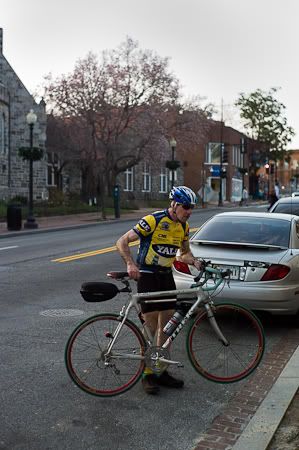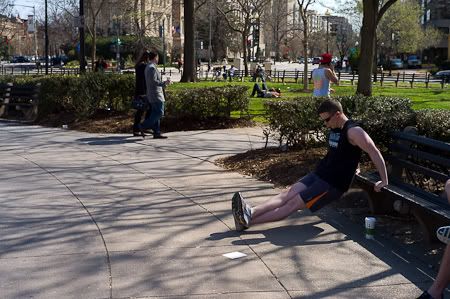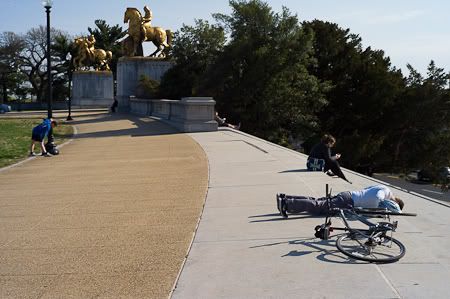Ten days after a magnitude 9.0 earthquake hit Japan in the early hours of Friday 11th March, the events at the Fukushima Dai-Ichi nuclear power plant are still dominating headlines. Though clearly not a trivial event, the plant in Fukushima is not (and never was) a threat on the scale of the Chernobyl disaster and, in my opinion, the reporting of it as such shows serious flaws in the way science is reported in both the British and foreign media.
As a brief overview, the Fukushima plant is comprised of 6 boiling water reactors, which use the heat generated from nuclear fission to boil steam, which then powers electrical turbines. The reactor core is comprised of fuel rods, which contain the material that drives the nuclear reaction, surrounded by water acting as a coolant. In the case of reactors 1,2,4,5 and 6 in the Fukushima I plant, the fuel rods contain pellets of enriched uranium, though roughly 6% of the rods in the 3rd reactor also contain plutonium. Underneath the reactor lies an arrangement of control rods, comprised of elements that can absorb neutrons such as Boron, which can be inserted into the central core of the reactor to slow the reaction down, or stop it entirely.
This is exactly what happened automatically at Fukushima after the earthquake, and the successful action of the control rods is one of the most important reasons that comparisons of this accident with Chernobyl are flawed. At Chernobyl, fuel rods had been withdrawn from the reactor core in order to maintain a suitable power level for an experiment which was being run. This led to overheating of the reactor, which could not be effectively shut down upon reinsertion of the control rods due to serious design flaws in the reactor. For example, the use of graphite tips on the control rods which initially sped up the nuclear reaction due to graphite’s effect as a neutron moderator: it feeds neutrons back into the nuclear reaction in a positive feedback cycle. In most modern power plants water is used as a moderator instead. As the water boils due to the heat generated, it turns to steam, which does not feed neutrons back into the reaction. This slows the reaction down, and inhibits the generation of heat in a negative feedback loop, making Fukushima much more stable than Chernobyl.
This water is what caused the explosion at the 1st, 2nd and 3rd reactors. As temperatures rose in the reacting vessels, it is likely that some of the alloys containing the nuclear material split, allowing the radioactive elements to react with the water, splitting it into hydrogen and oxygen. The hydrogen was vented to the top of the reactor building where it exploded, blowing the steel roof off the reactor. It is important to note, however, that the concrete containment vessel surrounding the reactor vessel was not breached, though some damage was suspected at unit 2. No containment vessel at all was present at Chernobyl, meaning that as the graphite in the fuel rods set alight, the fire could spread radiation into the atmosphere.
However, some radiation was released in these explosions. To quantify the amount, the unit Sieverts (Sv) is used. This measures the amount of radiation absorbed in joules per kilogram, multiplied by a weighting factor for the radiation type and the biological tissue absorbed into. What a Sievert measures and the effect of different levels of absorbed radiation have been the source of most misunderstanding and the least well explained factor in the disaster. Pretty much everyone receives at least a few milliSieverts just from being. Indeed, eating a banana increases your radiation dose by about 0.1 microSieverts (μSv), which defines the standard for the banana equivalent dose (BED) that is used to highlight how much background radiation we are exposed to on a daily basis.
After the second explosion – on March 15th – a rate of 400 mSv/hour (≈0.1 mSv/s) was detected at the site of the reactor. This is a large rate and would lead to radiation sickness in an hour or two, however, this was a spike that lasted less than two hours, after which the radiation levels for the remainder of the day decreased, and roughly 12 hours after had fallen to less than half a milliSievert. Though it necessitated the raising of the dose limit permitted to workers from 100 mSv to 250 mSv, this level, which has generally remained the upper limit, equates to about 80 mSv if you stayed non-stop at the power plant from the occurrence of the earthquake until the time of writing (two weeks). However, this does not mean the plant is utterly harmless. Some greater leaks of radiation will occur due to the need to vent steam and a few days ago 3 emergency workers were hospitalised after being exposed to roughly 170 mSv by stepping in contaminated water, suffering from beta ray burns. Overall 20 workers have now been injured at the plant, though half of these were due to the explosions last week.
Though there are potentially still some health risks posed by the plant due to contaminated food and water, these risks should not be overstated. Radiation limits have always been set extremely stringently, for instance, the milk produced by cows in the Fukushima prefecture contains radioactive iodine-131 at five times the legal limit but on a typical Japanese diet, drinking solely this milk for an entire year would come out to about 1-2 μSv. It is also worth remembering that, whilst there may be a case against building nuclear power plants in regions that frequently suffer earthquakes, this was the fourth largest earthquake since records began and was over 5 times more powerful than the plant was built to withstand. Even then, the backup generator the plant had was only destroyed by the tsunami produced from the quake.
In my opinion, the Fukushima earthquake is an endorsement of nuclear power and, whilst a review of safety measures may well be a sensible choice, Germany’s choice to shut down all reactors temporarily seems to be a massive overreaction. In addition, the media, which not only provided woefully inadequate explanation of the mechanism behind the power plant and how radiation dosage is measured, suggested Japan had been ’48 hours away from another Chernobyl’ and suffered a ‘nuclear nightmare’ has done little to inform the public of the pros and cons of nuclear fission power.















